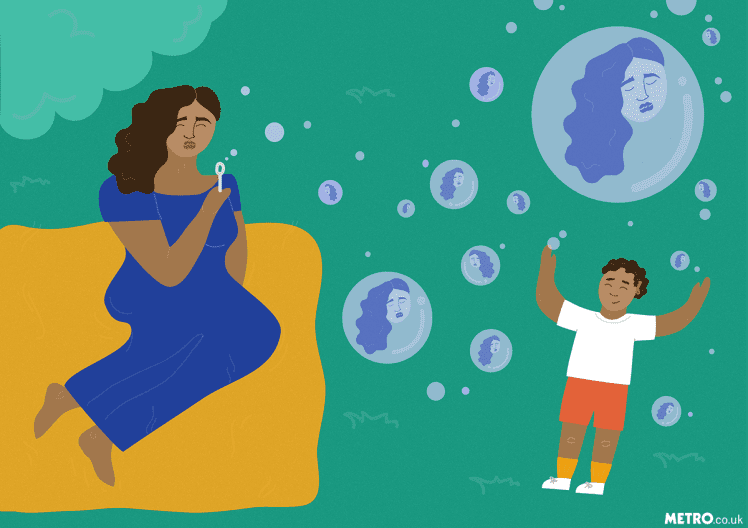By: Michelle Vasiliu
My experience of bipolar
I suffered from major depression from my late teens but I wasn’t diagnosed with bipolar till 2007 when I was 40 years old. My form of bipolar is largely about extreme depressive episodes and less frequent hypomanic episodes. I’ve only had three major manic episodes – back in 2007 when I was first diagnosed and more recently in 2015 and then again in 2016 when I was hospitalised for 8 1/2 weeks. During this period I was in and out of hospital 18 times over a period of 28 months. For me, the depressive episodes are the most debilitating. At my worst I get suicidal, hence the admissions to hospital.
How my children reacted when I was hospitalised
When I was first hospitalised in 2007, my children were only six and three. Some people think a three year old is too young to know what is going on but in my experience this is not true. In fact, research shows that even young babies can sense when a mother is mentally unwell.
In my case, it became apparent my daughter was picking up on my mood and reacting to me being unwell when she started drawing circles in an angry fashion over and over again with black crayon.
Both children had counseling at the time and my husband and I tried our best to explain what was happening to me in an age appropriate way. They visited me in the hospital on a regular basis. They sometimes ate dinner with me in the dining room, I read them stories and tried to set up a special place in the hospital where we could play simple games. It wasn’t easy.
With the admissions over the last few years, it was a bit mixed in terms of the children’s reactions. My daughter had quite extensive counseling both at school and with a private psychologist. Sometimes she’d go a bit “off” in terms of her behaviour. She also became a bit distant each time I came back home. The counselor said this was normal as she would be hesitant at first to get too close in case I had to go back into hospital and subsequently leave her again.
My son took on a very nurturing role. When he saw me crying, he would give me lots of hugs and tell me “it’s ok”. At school, there were lots of comments about how resilient he was, and still is. And it shows in his behaviour at home too. He now just gets on with things a lot more without making a fuss.
Given how much time I’ve been in hospital over the past three years, both children have had to fend for themselves a lot more. I’ve been surprised and pleased with the maturity and responsibility they’ve shown.
How being hospitalised affected my sense of motherhood
It was really hard. No-one wants to be sick and when you’re a mother the last thing you want, is to be sick and not able to care for your children. Having to admit that I couldn’t look after myself, let alone my children was devastating. I was torn between seeking help and trying to cope. The decision to go into hospital of my own admission was incredibly difficult and heart wrenching. I was constantly fighting the guilt and wondering what negative effects me leaving my son and daughter would have on them. In the end, I had to just keep telling myself, I was no good as a mother to them if I couldn’t function. I had to get well in order to be a good mother. It was a daily battle I fought with myself. Every day at about three o’clock I would get really low as that was the time I’d normally be picking my children up from school, ready for all the after-school activity. The nurses had to keep reassuring me that I was doing the right thing staying in hospital so as to get well enough to go home and get back to being a full-time mum.
*Stay tuned for Parenting With Mental Illness Part 3! In case you missed it, you can find Michelle’s Parenting With Mental Illness Part 1 here*
To learn more about parenting with mental illness watch Michelle’s Psych Byte with IBPF HERE:
You can order your copy of My Happy Sad Mummy HERE.


